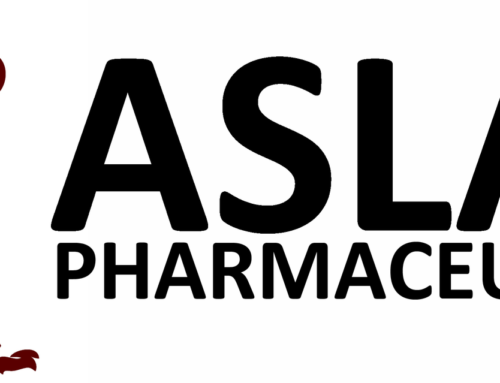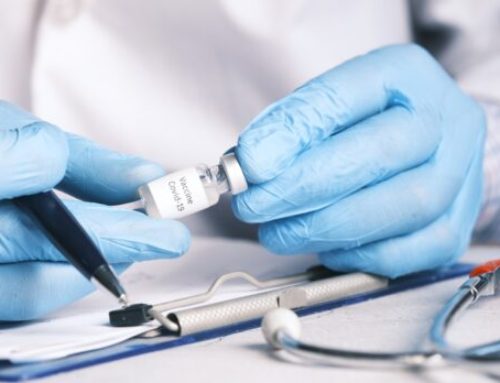Babies from a Covid-19 mRNA vaccinated pregnancy will still need primary jabs
Covid-19 vaccinated parents pass on antibodies to their babies but titres are likely to have waned at six months.
Things to know:
- Inherited antibodies in babies wane over time. The ideal Covid-19 vaccine first dose is at six months.
- Antibodies in babies could have a negative impact on vaccine efficacy, but it is unclear as to what extent.
- Parents who received a booster shot during pregnancy may delay vaccinations for their babies, but timelines are still nebulous.
- The best time to be vaccinated during pregnancy is as soon as possible to allow optimal protection for parent and baby.
Infants of parents who were vaccinated with Covid-19 mRNA vaccines during pregnancy would still need to receive the first two injections once they reach six months old. These babies only acquired SARS-CoV-2 protection from passive immunity, which is likely to have waned at six months.
In parents who received the third dose, the infant’s Covid-19 vaccination may be delayed, but more data is needed to pinpoint specific timelines. Meanwhile, it is imperative for previously infected pregnant individuals to still be vaccinated, as antibodies from a natural infection are less likely to be transferred to the infant compared with ones triggered by vaccines.
Momentum is building for certain countries to start vaccinating children aged five to 11 years. But individuals who were vaccinated during pregnancy are asking if their babies should also receive the first two doses of a Covid-19 mRNA vaccine if vaccinations are authorised in children aged six months to five years. The ideal time to be vaccinated during pregnancy is as soon as possible, as pregnant individuals are at heightened risk of severe Covid-19. Earlier vaccination also increases the chance of higher antibody titres being passed on to the infant.
Data imminent in under-fives
In the US, mRNA vaccines by Moderna and Pfizer/BioNTech are recommended during pregnancy. A Pfizer spokesperson said initial results in the group of children aged six months to five years in the Phase I/II/III Comirnaty (BNT162b2) trial (NCT04816643) are expected at the end of 2021.
Right after birth, the infant is likely to have comparable IgG titers to the parent, Gray said. However, exact timelines showing how rapidly IgG wanes in babies are still unclear, Edlow added. Based on experience with existing vaccines, such as for influenza, infants would be candidates for the primary schedule from six months, which is the same as babies from nonvaccinated individuals, Gray explained. It is possible IgG levels in babies aged six months are not at high enough levels for protection, University of Nebraska Medical Center pediatrics professor Dr. Ann Anderson-Berry noted.
On 23 July, this news service reported a third booster dose of mRNA vaccines in adults may increase side-effect frequency. However, IgG in infants is not their primary exposure to SARS-CoV-2 and so such side-effect issues may not be applicable in babies from vaccinated parents, Edlow said. At six months, IgG levels are likely to have been in decline, easing concerns for such increased side-effect risks, added Sheba Medical Center fetal medicine unit head Dr. Yoav Yinon.
IgG could interfere with vaccine
The baby’s inherited IgG could still interfere with how responsive the infant’s own immune system would be to the prime-boost vaccination, Edlow noted. Data should be collected in this regard. Nevertheless, receiving the first dose at six months is still likely to be optimal, she said. In pregnant individuals with a natural infection, antibody titres may have waned at four months. So, the more potent, vaccine-induced IgG levels in the baby may have decreased at six months, she added.
In Israel, pregnant individuals are given boosters at least five months after the second dose. This may allow a higher level of IgG to be passed on to the infant, Yinon said. In effect, babies from these pregnancies may have a higher level of IgG than in infants whose parents only received the first two doses, he added. As such, the booster may allow for more sustained IgG levels in these babies, he explained, but noted more data should be collected to confirm this possibility. The Pfizer spokesperson said guidance on who should receive booster doses resides with regulatory authorities and national health agencies.
Previous infection does not preclude vaccines
What is certain is that pregnant individuals who have recovered from Covid-19 should still be vaccinated. Vaccine-induced antibodies are more likely to be passed on to the infant than ones from a prior infection, Gray added.
Vaccines induce higher antibody titres than a natural infection, which means more antibodies are passed on to the infant, Gray explained. Everyone has variable immune system reactions from a natural infection, Anderson-Berry added. Also, there could be differences in the sugars attached to the antibodies induced by vaccines versus natural infections, which makes vaccines more likely for IgG transfer, Gray said.
Further supporting the argument for vaccination after Covid-19 recovery is the fact that it may lead to more IgG antibodies transferred to the infant, Anderson-Berry said. The higher the antibody levels passed on to the baby, the better, as correlates of protection are still nebulous, she explained.
Between the different Covid-19 vaccine technologies, mRNA vaccines with a longer gap between doses may induce a higher antibody titre, and double-dose vaccines would be superior to single-shot vaccines, Anderson-Berry said. While there could be some nuances on which vaccine induces a relatively higher rate of antibody titres, any of the authorized vaccines should induce enough IgG to be transferred to the infant, Edlow noted.
Vaccinations best as early as possible
There is some confusion among pregnant individuals about optimal timelines for vaccination. However, vaccination should happen regardless of what stage, Gray said. In fact, the sooner the better, Anderson-Berry noted, adding vaccination should happen even if the parent does not complete the prime-boost series during pregnancy. If the individual is vaccinated earlier, it allows for the vaccine to work for longer, thus allowing for a higher chance of antibodies to be passed on, Edlow explained.
There are two types of vaccinations during pregnancy. The first is designed to protect the pregnant person as symptoms are more severe during pregnancy (such as the influenza vaccine), and the second is designed primarily to protect the baby during the first months of life (such as the whooping cough vaccine).
Covid-19 vaccines belong to both types, as pregnant parents are more likely to be hospitalized when infected with SARS-CoV-2, Gray said. Pregnancy can lead to decreased lung capacity, to the detriment of the person’s respiratory status, she explained. On top of IgG transferred via the placenta, breastfeeding also allows IgA antibodies to be passed on to the infant, she added.
Robust safety data in pregnant individuals
The main reason for vaccine hesitation among pregnant individuals is adverse effect concerns for the infant. However, there is no evidence of increased risk of pregnancy loss, preterm birth, poor fetal outcomes or even birth defects, Edlow said. Impaired fertility is also an unfounded concern, Anderson-Berry noted.
Safety data is robust in pregnant individuals, with at least 168,000 pregnant people vaccinated in the US, and at least 81,000 in the UK who have received their first dose, Edlow said. Safety data in Covid-19 vaccines is more robust than in therapeutics, as vaccines have been used in more pregnant people, she noted. Covid-19 vaccines are efficacious in pregnant individuals, with the vaccines inducing the same immunogenic response in this group as in nonpregnant people, she added.
As for side effects in infants aged six months and older, accumulated data is not yet available, but early results indicate the vaccine is well tolerated overall, Anderson-Berry said. Although, while side effects in children and adults may be similar, there is still the risk it may lead to severe clinical outcomes in kids, this news service reported on 17 September.
Because infants cannot articulate vaccine-related side effects, parents and vaccine givers would need to be cognizant of the baby’s behaviour, including more fussiness, decreased energy, or a poor appetite, Anderson-Berry noted. Injection site redness and fever should also be monitored.
Moderna, which is running a Phase II/III Spikevax (mRNA-1273) trial (NCT04796896) in children aged six months to under 12 years, did not respond to a comment request. The trials’ ClinicalTrials.gov listings do not indicate if infants from vaccinated parents are included or excluded.
While Johnson & Johnson’s adenovirus-vectored vaccine is also okayed in the US during pregnancy, uptake in pregnant individuals has been low due to rare cases of thrombosis with thrombocytopenia syndrome (TTS) being predominantly detected in adult women younger than 50 years old.
Passive immunity dissimilar to the first exposure
Infants from vaccinated individuals would still need the first two doses because immunoglobulin G (IgG) antibodies transferred via the placenta are likely to wane, Brigham and Women’s Hospital maternal-fetal medicine attending physician Dr. Kathryn Gray explained. “It’s not as if the baby is also vaccinated,” she said, adding any immunological memory induced by the mRNA vaccine in the parent is not passed on to the infant. This is in line with existing vaccinations during pregnancy, Massachusetts General Hospital maternal-fetal medicine specialist Dr. Andrea Edlow noted.



